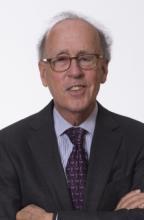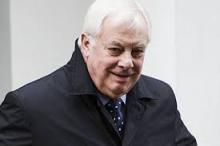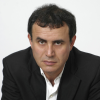Finland show the way to coffee binge-drinking
I was between jobs a few years ago when I stumbled into a bit of public relations work for the coffee industry. The coffee marketers seemed a decent lot, just men and women trying to make a living. They had only one characteristic that bothered me -- they were a bit twitchy, probably because they were consuming too much of their own product.
In a room full of European coffee executives in Brussels one summer afternoon, I observed this twitchiness first-hand. It became clear as we discussed their business that they were so anxious they could not sit still. They shifted in their chairs, tapped their feet, scratched their heads as the dialogue descended into their deepest fears - the dread of becoming the next big health scare. Already some studies had tried to link coffee addiction to heart problems.
When I proposed a counter-campaign to promote the positive effects of caffeine - and they are considerable -- the Italian in the group jumped up and said, "Not in my market. We are coffee addicts and we like it that way." Amid nervous laughter, everyone concurred and we adjourned early.
Coffee has a long history of ups and downs. Over time, it has been blamed for fueling riots, triggering sedition and leading to Satan worship. The Grand Mufti of Constantinople even banned coffee in the 16th century. Anyone caught sipping coffee twice was bound into a leather bag and dumped at sea.
Today coffee has become what most people reach for to start their day.
Now a new study of coffee drinkers in Finland - one of the biggest coffee consuming cultures in the world - brings good clinical news. By accident, the coffee lobby turned out to be right: drinking as much as eight cups a day is not only harmless, it can be good for you.
Coffee contains antioxidants and can improve insulin sensitivity and reduce the risk for incident Type 2 diabetes, the study showed. Among adult males, coffee helps prevent blood clots that cause embolic strokes.
The study, published in the current issue of the U.S. medical journal "Stroke", says Finnish smokers who consumed eight or more cups of coffee per day had a 23% lowered risk for cerebral infarction - the most common kind of stroke.
The long-term study consisted of 29,133 Finnish men aged 50 to 69 years who smoked at least five cigarettes per day and had no history of stroke. From 1985 to 1988, these men were recruited into the trial.
Approximately 2.5% of the study sample reported never drinking coffee, and approximately 64% did not drink tea. Daily coffee consumption among drinkers averaged 5.7 cups.
"After adjustment for age and cardiovascular risk factors," the study reported, "both coffee and tea consumption were statistically significantly inversely associated with the risk for cerebral infarction."
This study comes amid other coffee-related health worries, however, which most of us are headed for if we work in an office environment. Free coffee comes with your job? Your employer may be attempting to keep you jumped up and twitchy, as opposed to sleepy and dreamy. Addiction to coffee sometimes fits in well with corporate objectives.
And now "energy drinks" such as Red Bull, which contain sugar, caffeine and guarana, are marketed to younger age groups, regardless of addictive dangers. Worse, young drinkers like to mix these stimulants with vodka, producing drug-like effects.
How can you overcome your caffeine addiction? Some doctors will advise you to switch to tea, or to the ultimate wimp's drink, a few cups of hot water per day.
I tried to stop my five-a-day coffee habit recently and ended up with a range of side effects -- three weeks of jitters and a brain ticking over at half speed. Eventually, my natural stimulus system came back to life after years of suppression by caffeine, and I functioned just about normally again.
Like all addicts, though, I craved my demon and was gradually drawn back to the steaming brown brew. Readdicted and worried, I was delighted to learn recently from "Stroke" that I could - and perhaps should -- be drinking even more coffee.
The coffee marketers must be celebrating - this time with Irish coffee.
This article is brought to you by the author who owns the copyright to the text.
Should you want to support the author’s creative work you can use the PayPal “Donate” button below.
Your donation is a transaction between you and the author. The proceeds go directly to the author’s PayPal account in full less PayPal’s commission.
Facts & Arts neither receives information about you, nor of your donation, nor does Facts & Arts receive a commission.
Facts & Arts does not pay the author, nor takes paid by the author, for the posting of the author's material on Facts & Arts. Facts & Arts finances its operations by selling advertising space.



















